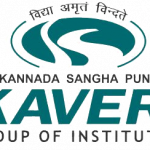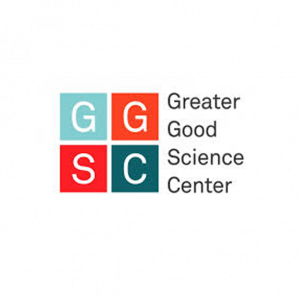The Mindful Parenting Program (MPP) is an initiative by the Kaveri Group of Institutes (KGI), Pune, in collaboration with, and funded by Greater Good Science Center (GGSC) at the University of California, Berkeley, USA. It will help parents nurture generosity, gratitude, forgiveness and related pro-social skills in themselves and their children.
About Us
What is MPP ?
KGI responded to a request for proposals from GGSC in Dec 2017, to start a Parenting Education program for parents of children between the ages of 4 and 13 years. In Feb 2018 they were awarded the grant and had the proud privilege of being one of only 16 grantees. They are also the only Indian organization to be selected for this grant from over 200 applications across the world. The grant is for a two-year period, where in GGSC and their partners will provide KGI the support required to design, and scientifically evaluate a Parenting Education Program that suits our Indian context and can be sustained over time.
Besides being a Parenting Education program, that is specially tailored for Indian schools, MPP is also a research project that is being guided by one of the best in the world and who have themselves been working on the science and practice of a meaningful life since 2001.
Core Team Members
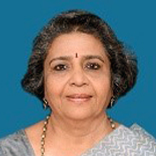
Malati S Kalmadi
Secretary, Kannada Sangha Public Trust
Malati S. Kalmadi is passionately involved in holistic and meaningful education and the MPP would not have been possible without her vision and drive. As the Secretary of Kannada Sangha Public Trust, Malati and the board of Trustees are entrusted with the task of running the Kaveri Group of Institutes (KGI).
KGI aims to create an environment conducive to learning and prides itself on being a caring institute for all stakeholders – children, parents, teachers and principals. KGI has many innovative firsts to its credit and now one more, with the Mindful Parenting Program. Malati has a teaching background and is a deeply caring and committed human being, involved in many causes and boards. Over the years she has helped create a vision for KGI where they are guided by two principles of having a learner centric approach and creating a safe environment for the stakeholders thereby moving towards holistic education. She plays a significant and crucial role in keeping KGI motivated in accepting change, being creative and committed to the cause of meaningful education. The management of Kannada Sangha can say with pride that they have created a friendly, non-threatening and transparent environment in their Institutes that are built on a foundation of trust, faith and love.
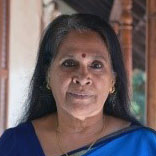
Vijayam Kartha
Educational Consultant And Trainer
Vijayam Kartha is an Educational Consultant and Trainer. She is part of Initiatives of Change (www.iofc.org), a worldwide movement of people who believe that personal change leads to societal change. She strongly believes in the power of values based, quality education to transform society, as well as the teachers’ crucial role in nation building.
She, along with a few of her friends in IofC, is pursuing a dream of ‘Reinventing Schools, Rebuilding the world’.
During her 30 plus years career, Vijayam has redefined education in her schools. As a Principal of one of the largest schools in Jamshedpur, Jharkhand and later as Vice Chairperson of Kerala Public Schools, a chain of 9 schools, she tried to build a harmonic balance between academics, and sense of compassion and social responsibility towards our society, environment and ecosystem. Some of these activities included: Village development programme, Rural school adoption, Free education of slum children in the English medium school campuses during its free hours, Camp schools for out of school tribal girls, environment conservation activities etc.
Her work has been acknowledged by the Government and many Non-Governmental Organisations and is the winner of many national awards.
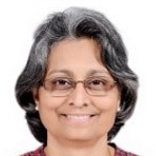
Jyoti Kumta
Teacher, Counsellor, Trainer
Jyoti Kumta is a trained teacher, counsellor, corporate assessor and trainer with a wide variety of experience. In later years she realised that her heart lay in schools and specifically in Values Education, so she consolidated all the skills learnt over a period of more than two decades and prepared a training program for school children in Values Education/Life Skills.
She followed it by developing a training program for teachers and has since conducted numerous workshops on ‘’Can Values be Taught’’ ‘’How to Teach Values’’ and the “Role of Questioning Skills and Reflective Practices in Values Education”. She strongly believes that values are surely caught but must definitely be taught as well. This has driven her to study the teaching and learning of values and think of ways and means to ensure Values Education becomes an integral part of the school curriculum.
Parenting Education seems to be a very natural progression for her since teachers and parents are the most important values educators in a child’s life.
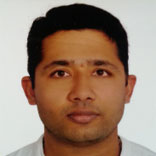
Sunder Iyer S
Mechanical Engineer By Training
Sunder Iyer S, is a mechanical engineer by training. He was drawn into teaching by the promise to change many young lives. His spiritual guru, Swami Muktanand from Anand Ashram, initiated him into Values Education and guided him to develop a program that he first taught with a team in Kerala and now teaches to students and teachers alike in Pune and Bombay.
With fourteen years of experience in education now, he hasn’t looked back.
He co-founded VSET, an NGO engaged in a values education program for children in the age group of 12 to16 years, with Ram A, in the year 2003.
Sunder has been connecting with people from all walks of life, spreading his joy with co-travellers in the journey of life. Iyer is also engaged in conducting residential retreats for adults in the age group 16 to 60 yrs, on how to lead a stress free life and also on how to live in the ‘now’.
Passionate about musical instruments, Iyer comfortably jumps from one musical instrument to the other in pursuing his marriage with music.
Advisors
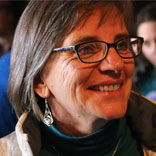
Monica Hargraves
PhD, Advisor
Monica Hargraves, PhD, has a B.A. from Princeton University and a Ph.D. from the University of Rochester. She is currently the Associate Director for Evaluation Partnerships in the Cornell Office for Research on Evaluation (CORE) at Cornell University.
She is actively engaged in research on CORE’s Systems Evaluation Protocol and the Netway. Her particular focus has been on “evolutionary evaluation” and evaluation capacity-building through evaluation partnerships between program staff and evaluation specialists. Her recent work includes research projects and evaluation partnerships with grassroots organizations working on social justice especially in food system projects, and diverse youth-serving organizations across the US and internationally. Current projects include two collaborations with colleagues at Montclair State University: the Partnerships for Advancing Character Program Evaluation (PACE) Project, and the Greater Good Science Center’s Parenting Program Initiative based at the University of California, Berkeley. She is deeply interested in collaborative research projects and how the tools and foundational principles of the Systems Evaluation Protocol and evolutionary evaluation can be used and adapted to create unique bridges between the expertise of on-the-ground practitioners and those supporting, funding, or researching community-based work.
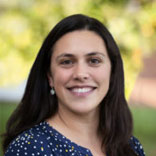
Jane Buckley
Advisor, Evaluation capacity consultant
Jane Buckley is an evaluation capacity consultant. She specializes in the promotion of Evaluative Thinking and program and evaluation planning. Jane graduated from Cornell University in 2004 with a BS in Human Development and from the Bank Street College of Education in 2006 with an M.Ed.
After working as a classroom teacher at a charter school in New York City, Jane returned to Ithaca, NY and began working as specialist in science education. It was her work on evaluating these programs that led her to the field of evaluation. In 2008, Jane began working as a Facilitator of Evaluation Partnerships at the Cornell Office for Research on Evaluation (CORE). While at CORE, Jane worked with a variety of science education programs among others to develop evaluation capacity and plan their evaluation work. This experience, in a new role, but once again an educator, rekindled Jane’s interest in the way people learn, and ‘learn to learn,’ in different contexts. In 2015, Jane began working as an independent consultant (evaluativethinkingcapacity.com), with a focus on providing advice and training around Evaluative Thinking and establishing a culture of learning throughout an organization. Since that time, Jane has worked with Catholic Relief Services to develop and implement workshops for program staff and leadership around the world; she was a lead facilitator on the Partnerships for Advancing Character Education Program (PACE) and the Greater Good Science Center Parenting Program Initiative, a consultant to the Cornell Cooperative Extension Harvest New York programs as well as The Duke Endowment.
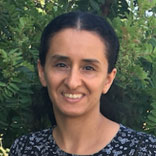
Maryam Abdullah
Advisor, PhD, Parenting Program Director at the Greater Good Science Center
Maryam Abdullah is the Parenting Program Director at the Greater Good Science Center at the University of California, Berkeley.
Her role is to share research-based resources for parents and families to help them foster strengths including generosity, gratitude, forgiveness, humility, and purpose in themselves and their children.
She is a developmental psychologist whose research includes exploration of parent-child relationships, early development of children with autism spectrum disorder, and traditional behavioral and canine-assisted interventions for children with attention-deficit/hyperactivity disorder.
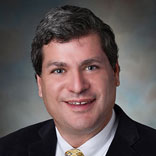
Robert W. Roeser
PhD, MSW
Robert W. Roeser is the Bennett Pierce Professor of Care, Compassion and Human Development at Penn State University. He has a Ph.D. from the Combined Program in Education and Psychology at the University of Michigan (1996) and holds master's degrees in religion and psychology, developmental psychology and clinical social work.
Dr. Roeser’s main research interests focus on adolescent development, school as a main cultural context affecting the holistic development of the person; and on the role of contemplative practices like mindfulness and compassion training in education for adults and students alike.
About KGI
Kaveri Group of Institutes (KGI) is a group of schools and colleges in Pune. It is run by the Kannada Sangha, a cultural organization founded in 1952. KGI began by founding ‘Karnataka High School’ (KHS), which was established in 1963 for 35 under privileged children. Today, KGI serves children of all ages and has over 7000 students.
KGI institutes include:
- Two English medium schools
- One International School
- One Kannada medium secondary school for children of underprivileged Kannadigas
- One English medium junior college offering Science and Commerce
- One English medium senior college offering Humanities, Science and Commerce at the Undergraduate level and M.Sc. in Computer Science at the Post Graduate level.
- Kaveri Gifted Education Centre
- Kaveri Kalakshetra (a cultural organization to promote Arts among children & youth)
- Kaveri Nurturing Centre – a day care center
KGI’s vision is to provide a Learner Centered, Safe Environment. It’s mission is “To be a knowledge mentor promoting original thinking in students, through a learner centered educational platform that uses innovative and experiential pedagogy so as to instil in students and staff high ethical standards, accountability and proactive citizenship.”
Kaveri Group believes: “Every child is good; every child is different and unique; every child is special; every child has potential”. The philosophy of the group is to bring about holistic development in every child: intellectual, emotional, spiritual, creative, intuitive and physical. It believes in imparting art and culture to young minds and help them develop and express their creative talents.
About GGSC
“Based at the University of California, Berkeley, one of the world’s leading institutions of research and higher education, the Greater Good Science Center (GGSC) is unique in its commitment to both science and practice: Not only do they sponsor ground-breaking scientific research into social and emotional well-being, they help people apply this research to their personal and professional lives.
Since 2001, they have been at the fore-front of a new scientific movement to explore the roots of happy and compassionate individuals, strong social bonds, and altruistic behaviour—the science of a meaningful life. And they have been without peer in their efforts to translate and disseminate this science to the public, including through their award-winning online magazine, Greater Good.”
https://ggia.berkeley.edu – (Resources Science based practices for a meaningful life)
https://greatergood.berkeley.edu/ ( free online Magazine)
Get in touch
info@mindfulparentingindia.com OR
mindfulparentingindia@gmail.com
Phone / WhatsApp: +91-93708 83874

